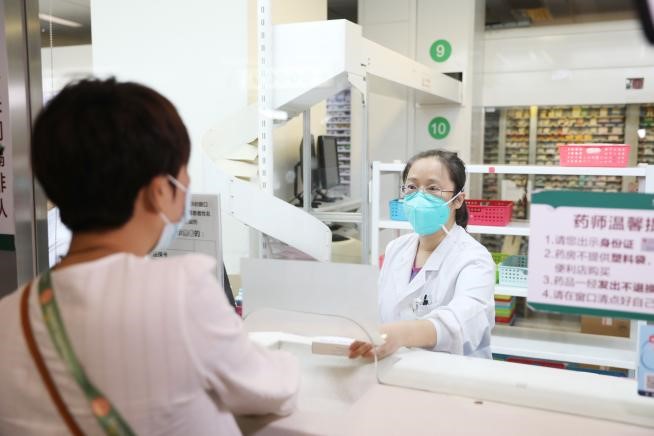On the afternoon of September 22, 2022, Dr. Lu Qiang, associate chief physician of the Department of Neurology, PUMCH prescribed clobazam to a wheelchair-bound patient with refractory epilepsy after careful inquiries, and explained in detail the drug regimen and precautions to the patient’s family. This is the first prescription in China for clobazam, a refractory epilepsy drug. Now patients with refractory epilepsy can use the drug rationally and safely under the guidance of doctors that both meets their medication needs and reduces the risk of adverse drug reactions. The prescription marks another milestone in the use of drugs for rare diseases in China.
Clobazam is effective in the treatment of some rare or refractory epilepsies. As a new benzodiazepine drug, however, it is potentially addictive and is listed as a Category II psychotropic drug, which is under strict control in China. To address patients’ needs for medication, the government has taken the lead and worked with various parties to actively implement measures to deliver drug accessibility and meet patients’ treatment needs as soon as possible.
Led by President Zhang Shuyang and Vice President Du Bin, the Rare Diseases MDT of PUMCH and the China Alliance for Rare Diseases worked together to invite experts in fields such as neurology and pediatrics nationwide to validate clobazam. Then the process started: they worked closely with the manufacturer and the entrusted importer to make a series of declaration preparations in accordance with China’s requirements on one-off drug importation such as selection of the clobazam manufacturer and the specifications, price and quantity confirmation, and order contract signing, and then submitted the application for the one-off import and obtained the approval.
At the end of June 2022, the National Health Commission and the National Medical Products Administration jointly issued the “Work Plan for the Temporary Importation of Clobazam”, according to which epilepsy patients and their families can use clobazam prescribed by physicians who meet the stated conditions among the 50 tertiary hospitals nationwide listed in the plan. Zhang Bo, Director of the Department of Pharmacy of PUMCH said: “PUMCH pulled off the one-off importation of the rare disease drug mitotane in 2019, which set the precedent for fast importation of rare disease drugs in urgent clinical demand in China. Unlike the case with mitotane, the one-off importation of clobazam proceeded under the unified arrangement of the government and was for use in 50 designated hospitals nationwide. This establishes a new innovative mechanism with Chinese characteristics for increasing drug accessibility, providing a solution for other difficult-to-access rare drug diseases.”
To ensure the rational use of clobazam, the Rare Diseases MDT of PUMCH and the China Alliance for Rare Diseases, led by President Zhang Shuyang, organized national experts to compile the “Expert Consensus on Clobazam for Refractory Epilepsy (2022)”, to improve the efficacy and safety of clinical application of clobazam.

The patient’s family received clobazam at the PUMCH pharmacy window
Reporter: Wang Lu and Chen Mingyan
Correspondent: Xu Tingting
Picture courtesy: Sun Liang
Translator: Liu Haiyan
Editor: Wang Yao
